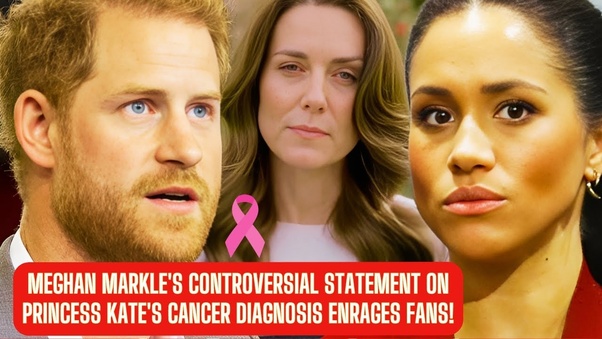Must Read
Shocking Allegations: Meghan Markle’s Supporter Claims Princess Catherine’s Cancer is Fake
A recent tweet by Jonathan Perkins, the Director of Race and Equity at the University of California Los Angeles Office of Equity, has sparked controversy by suggesting that Princess Catherine's cancer diagnosis may be fabricated.
Perkins expressed skepticism about Kate's illness, stating, “I personally don't believe Kate has or had cancer.”
His provocative comments were first reported by the Daily Mail, raising eyebrows and stirring up a storm of speculation.
In his social media posts, Perkins not only questioned the authenticity of Princess Catherine's health condition but also went as far as to insinuate that she might be in a coma or even deceased.
He criticized both Princess Catherine and Prince Charles, asserting that they do not deserve his respect.
This bold stance has drawn attention to Perkins, who previously praised Meghan Markle as an “American Princess” and is known for his controversial statements.
Furthermore, Perkins alleged a dubious connection between Meghan Markle and UCLA, claiming that the Archwell Foundation's financial contributions to the university were part of a scheme to target Princess Catherine.
According to Perkins, the donation from Meghan and Harry was intended to fund attacks on the royal family under the guise of combating discrimination and online bullying.
He accused UCLA of being complicit in this alleged plot, highlighting financial transactions and personal gains within the organization.
Despite Perkins' harsh criticism of Princess Catherine, he has shown unwavering support for Meghan Markle, dismissing any negative portrayal of her in the media as fabricated falsehoods.
His selective outrage and double standards have raised questions about his motives and integrity, especially considering his position at a prestigious academic institution.
Perkins' relentless attacks on Princess Catherine's character and health status have been met with backlash from those who view his behavior as inappropriate and unethical.
In a particularly callous tweet on Easter Sunday, Perkins made a distasteful joke about Princess Catherine, insensitively referencing her illness.
His insensitive remarks have further fueled the controversy surrounding his conduct and motives.
Despite claiming to be a cancer survivor himself, Perkins' actions have been deemed as lacking empathy and decency, especially towards someone facing serious health challenges.
Critics have pointed out the hypocrisy in Perkins' actions, highlighting the stark contrast between his treatment of Princess Catherine and Meghan Markle.
While he fiercely defends Meghan against perceived attacks, he shows no qualms in casting doubt on Princess Catherine's integrity and health struggles.
This inconsistency has led to accusations of bias and agenda-driven behavior on Perkins' part, calling into question his credibility and professionalism.
The controversy surrounding Perkins' statements has reignited discussions about online bullying, misinformation, and the responsibility of public figures in addressing harmful narratives.
Critics argue that individuals like Perkins, who use their platform to spread baseless accusations and sow discord, contribute to a toxic online environment.
The lack of accountability and consequences for such behavior raises concerns about the impact of unchecked misinformation and targeted attacks in the digital age.
As the debate continues to unfold, the implications of Perkins' remarks extend beyond the realm of celebrity gossip, touching on broader issues of ethics, integrity, and accountability.
The clash between differing perspectives on Princess Catherine's health and the motivations behind Perkins' statements underscore the complexities of navigating public discourse in an era marked by rapid information dissemination and competing narratives.
In light of these developments, the need for transparency, empathy, and responsible communication remains paramount.






























